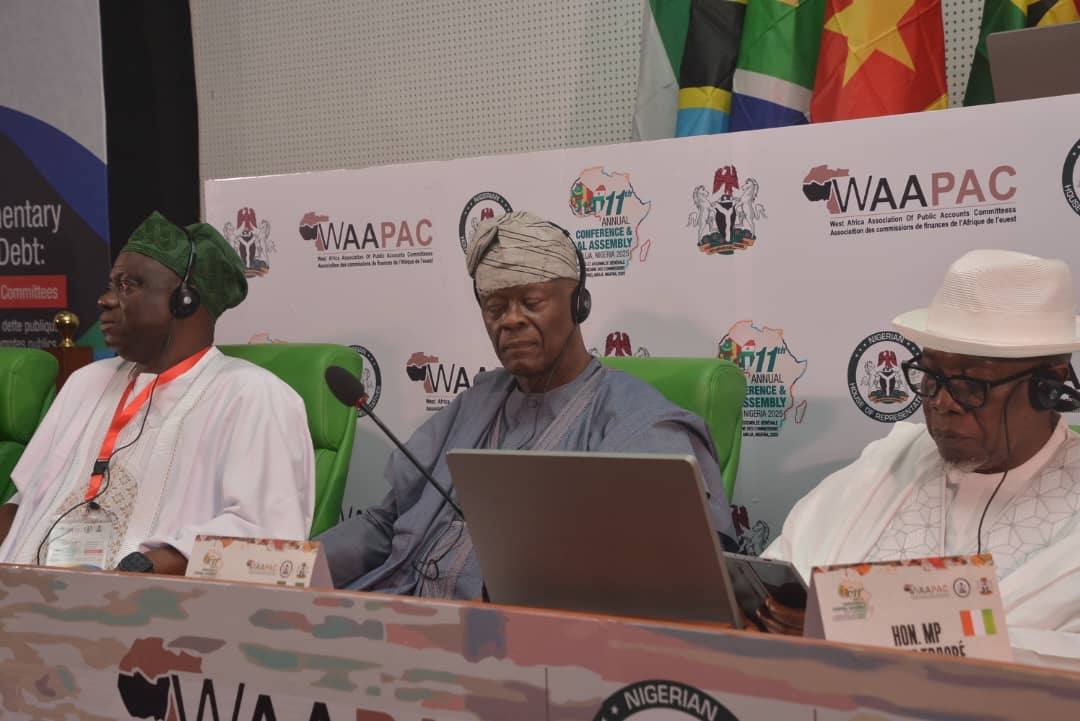Speaker Abbas has raised concerns about Nigeria’s rising debt stock at ₦149.39 trillion, alarmed that many African countries spend more on loan servicing than on health or education

Nigeria’s Minister of Finance and Coordinating Minister of the Economy, Wale Edun, has assured that ongoing economic reforms are putting the country’s debt profile on a more sustainable path.
This is as Speaker of the House of Representatives, Rep. Abbas Tajudeen, cautioned that the nation’s borrowing has reached a critical point.
Speaking at the 11th annual conference and general assembly of the West Africa Association of Public Accounts Committees (WAAPAC) in Abuja on Monday, Edun said bold policy choices under President Bola Tinubu are beginning to reverse negative fiscal trends.
“Nigeria is turning the corner. The reforms are delivering measurable impact in terms of investor confidence, reduced spending on fuel imports, greater energy self-sufficiency, and value addition in our economy,” the minister said.
He disclosed that the country’s debt service-to-revenue ratio dropped to about 60 percent in 2024, while the debt-to-GDP ratio currently stands at 38.8 percent, which he described as a “comfortable level” by global standards.
He added that revenues grew by 34.7 percent in the first half of 2025 compared to the same period last year.
Edun credited the gains to reforms such as fuel subsidy removal, exchange rate liberalisation, and tax reforms designed to boost efficiency and raise Nigeria’s tax-to-GDP ratio. He insisted that government borrowing would remain project-linked, transparent, and aimed at stimulating private sector-led growth.
At the same event, however, Speaker of the House of Representatives, Abbas Tajudeen, raised concerns about Nigeria’s rising debt stock, which stood at ₦149.39 trillion (about US$97 billion) in the first quarter of 2025, up from ₦121.7 trillion the previous year.
Represented by House Leader Rep. Julius Ihonvbere, the Speaker revealed that the country’s debt-to-GDP ratio has climbed to 52 percent, well above the 40 percent ceiling set by law.
ALSO READ: Nigeria’s debt addiction & legislative inaction | ANALYSIS
“This breach signals the strain on fiscal sustainability. It highlights the urgent need for stronger oversight, transparent borrowing practices, and a collective resolve to ensure that every naira borrowed delivers tangible economic and social returns,” Abbas said.
He warned that across Africa, debt has become a structural crisis, with many countries spending more on loan servicing than on health or education. To address this, Abbas proposed a West African Parliamentary Debt Oversight Framework under WAAPAC to harmonise debt reporting and strengthen legislative scrutiny.
The speaker stressed that borrowing should be targeted at infrastructure, health, education, and job creation, warning that “reckless debt that fuels consumption or corruption must be exposed and rejected.”
Speaking during the conference, chairman of the House Committee on Public Accounts, Rep. Bamidele Salam (PDP Osun), disclosed that the committee recovered over ₦200 billion in lost revenues for the federal government within the last one year.
Salam said the recoveries were part of a series of reforms to strengthen fiscal accountability in Nigeria.
He described the gathering, which Nigeria is hosting for the first time since WAAPAC’s creation in 2009, as timely, given the rising debt burden across Africa.
“While it is widely accepted that public debt remains a vital instrument for financing development, especially in emerging economies, it must remain sustainable, transparent and justifiable. Effective parliamentary oversight is indispensable to ensuring that debt accumulation does not become a pathway to fiscal crisis or an intergenerational problem,” Salam stated

